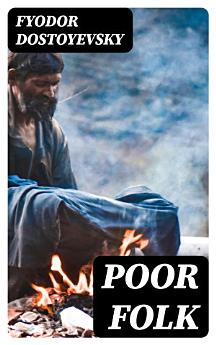Poor Folk
сеп 2022. · DigiCat
E-knjiga
129
Stranica
family_home
Ispunjava uslove
info
reportOcene i recenzije nisu verifikovane Saznajte više
O ovoj e-knjizi
In "Poor Folk," Fyodor Dostoyevsky delivers a poignant exploration of the lives of the impoverished citizens of 19th-century St. Petersburg, melding epistolary narrative with profound psychological insight. The novel follows the correspondence between Makar Devushkin, a humble clerk, and his young neighbor, Varvara Dobroselova, illuminating their struggles against societal indifference and personal despair. With its rich character development and stark realism, Dostoyevsky demonstrates the stark contrasts between human emotion and the harsh conditions of poverty, marking a significant precursor to his later works that delve deep into existential themes. Dostoyevsky, influenced by his own experiences of financial hardship and personal turmoil, constructs a compassionate narrative that reflects his early commitment to social justice. His exposure to the destitute and disenfranchised in Russian society, particularly after his imprisonment and subsequent exile, propelled him to create a literary landscape that portrays genuine human suffering. This backdrop not only informs the narrative but also underscores Dostoyevsky's evolving philosophical concerns regarding morality and the struggles of the human spirit. "Poor Folk" is a vital read for anyone seeking to understand the formative themes that underpin Dostoyevsky's oeuvre. It offers a striking perspective on empathy, resilience, and the social fabric of his time, making it an essential recommendation for readers interested in classic literature, psychology, and social issues.
O autoru
Fyodor Mikhailovich Dostoyevsky (1821–1881) is regarded as one of the towering figures of Russian literature and a profoundly influential philosopher of human psychology. Born in Moscow, Dostoyevsky was introduced to literature at an early age through fairy tales and legends, and later through books by Russian and foreign authors. His literary debut came with the publication of 'Poor Folk' in 1846, which garnered him a flurry of attention due to its stark portrayal of life for the poor in Russia. The novel's social commentary and distinctive narrative style, which showcases a deep empathy for the downtrodden and a keen insight into the complexities of human nature, marked the beginning of Dostoyevsky's exploration of the human condition, a theme that would echo throughout his career. His work is characterized by a penetrating analysis of psychology, an often-dramatic depiction of existential despair, and the struggle of man's spiritual redemption. His famous works, such as 'Crime and Punishment,' 'The Idiot,' and 'The Brothers Karamazov,' to name a few, are considered masterpieces, transcending the Russian literary canon and achieving global recognition. Dostoyevsky's novels have left an indelible mark on the landscape of world literature due to their psychological depth, philosophical intensity, and the moral questions they posed, which remain just as significant in contemporary discourse as they were during his lifetime.
Ocenite ovu e-knjigu
Javite nam svoje mišljenje.
Informacije o čitanju
Pametni telefoni i tableti
Instalirajte aplikaciju Google Play knjige za Android i iPad/iPhone. Automatski se sinhronizuje sa nalogom i omogućava vam da čitate onlajn i oflajn gde god da se nalazite.
Laptopovi i računari
Možete da slušate audio-knjige kupljene na Google Play-u pomoću veb-pregledača na računaru.
E-čitači i drugi uređaji
Da biste čitali na uređajima koje koriste e-mastilo, kao što su Kobo e-čitači, treba da preuzmete fajl i prenesete ga na uređaj. Pratite detaljna uputstva iz centra za pomoć da biste preneli fajlove u podržane e-čitače.








